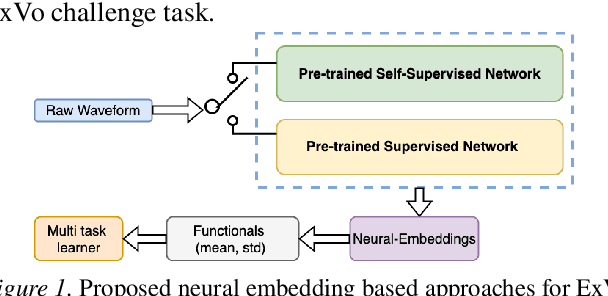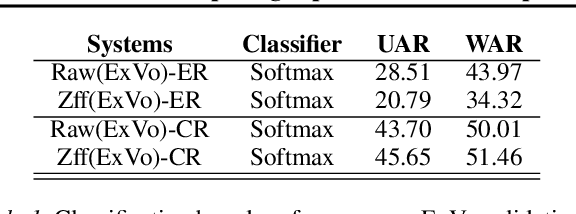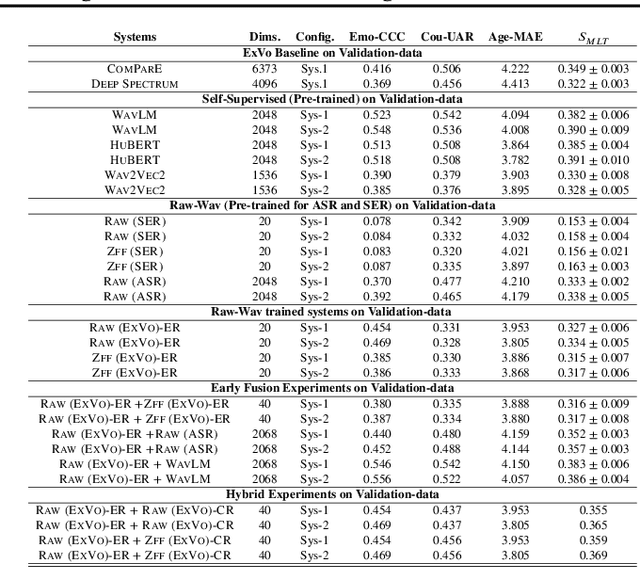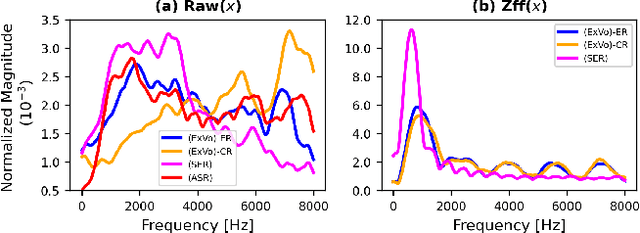Imen Ben Mahmoud
Feature Representations for Automatic Meerkat Vocalization Classification
Aug 27, 2024Abstract:Understanding evolution of vocal communication in social animals is an important research problem. In that context, beyond humans, there is an interest in analyzing vocalizations of other social animals such as, meerkats, marmosets, apes. While existing approaches address vocalizations of certain species, a reliable method tailored for meerkat calls is lacking. To that extent, this paper investigates feature representations for automatic meerkat vocalization analysis. Both traditional signal processing-based representations and data-driven representations facilitated by advances in deep learning are explored. Call type classification studies conducted on two data sets reveal that feature extraction methods developed for human speech processing can be effectively employed for automatic meerkat call analysis.
Comparing supervised and self-supervised embedding for ExVo Multi-Task learning track
Jun 23, 2022



Abstract:The ICML Expressive Vocalizations (ExVo) Multi-task challenge 2022, focuses on understanding the emotional facets of the non-linguistic vocalizations (vocal bursts (VB)). The objective of this challenge is to predict emotional intensities for VB, being a multi-task challenge it also requires to predict speakers' age and native-country. For this challenge we study and compare two distinct embedding spaces namely, self-supervised learning (SSL) based embeddings and task-specific supervised learning based embeddings. Towards that, we investigate feature representations obtained from several pre-trained SSL neural networks and task-specific supervised classification neural networks. Our studies show that the best performance is obtained with a hybrid approach, where predictions derived via both SSL and task-specific supervised learning are used. Our best system on test-set surpasses the ComPARE baseline (harmonic mean of all sub-task scores i.e., $S_{MTL}$) by a relative $13\%$ margin.
 Add to Chrome
Add to Chrome Add to Firefox
Add to Firefox Add to Edge
Add to Edge